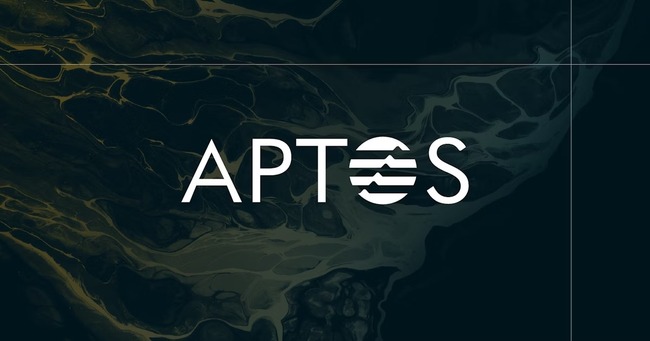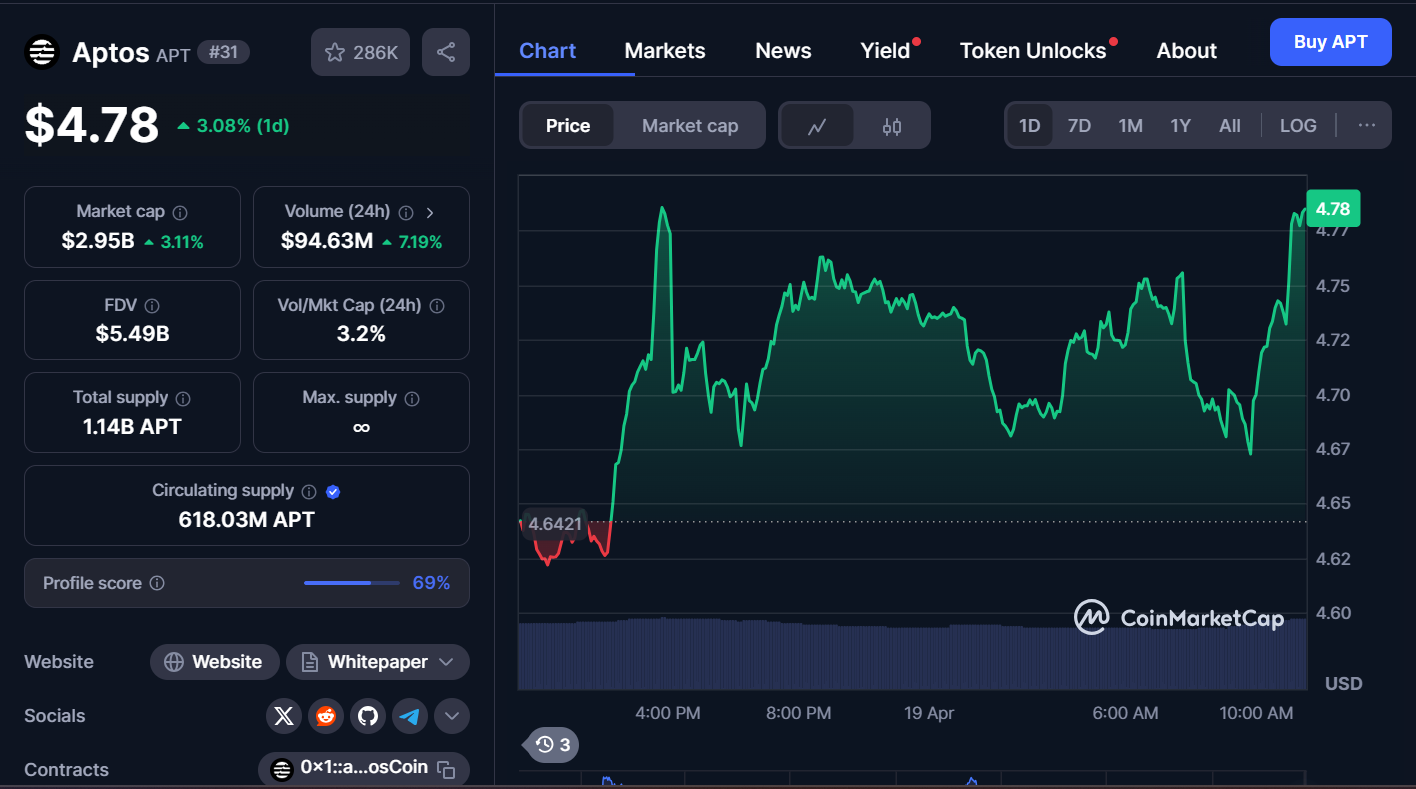New Aptos Proposal Aims to Lower Staking Yield and Boost Network Activity
0
0

Highlights:
- Aptos proposal suggests cutting staking rewards to 3.79% to boost active network participation.
- The community fears lower rewards may push small validators out and reduce overall network decentralization.
- Authors plan to collect feedback for four weeks before sending the proposal for a mainnet vote.
A proposal submitted on April 18 by community member MoonSheisty suggests a major change in Aptos staking rewards. It recommends cutting the staking yield from 7% to 3.79% over a three-month period. Sherry Xiao, head of production engineering at Aptos Labs, co-authored the proposal, which is named AIP-119.
Aptos community proposes slashing staking rewards from 7% to 3.79% over 3 months to enhance capital efficiency

The move aims to align with other L1 blockchains. Initial feedback shows resistance. #CryptoNow #Aptos #Staking pic.twitter.com/wAXJfgx8pO— CryptoNow (@crypnw) April 19, 2025
The proposal is intended to bring Aptos in line with other Layer 1 blockchains. It also tries to motivate users to be more proactive in the network. These include features such as restaking, DePIN infrastructure, MEV, and other things like various decentralized finance activities.
Currently, Aptos offers a 7% staking yield. The yield is higher than Ethereum’s 3.1%. However, Cosmos provides a higher yield of around 15%, while Avalanche offers a 7.6% yield. These numbers indicate that there is a lot of variance in staking rewards across various chains.
According to the authors, high staking rewards lead users to neglect more complex yet more rewarding roles in the ecosystem. They are pushing for more capital to be allocated to projects that bring more long-term value by reducing rewards.
Community Raises Concerns About Smaller Validators
With its submission, AIP-119 soon received feedback through GitHub and social platforms. While some users supported the idea, others expressed concern. ElagabalxNode warned that the change could force smaller validators out of the network.
He explained that many small operators are dependent on consistent staking rewards to stay in operation. Without a support program, a drop in their income could decrease their ability to compete. He added that it could undercut Aptos’ decentralization and long-term strength.
However, the issue has been addressed within the proposal. It proposes the development of a validator support program that will distribute grants and stakes to smaller participants. The move would enable them to continue running nodes and continue contributing to the ecosystem.
In line with this, Xiao urged the Aptos Foundation to review current stake delegations. She proposed shifting stake toward more active validators. This, she explained, would help align incentives with the goal of long-term network growth.
One validator suggested using a model similar to Solana’s delegation program. That program matches stake to smaller, reliable validators. It helps them maintain income despite having fewer direct delegators. Others in the discussion encouraged validators to explore new income models. These include running RPC services, participating in MEV, indexing, and building data bundles. These alternatives offer “real” staking yield, not dependent on token emissions.
Community Feedback Will Shape Final Outcome
AIP-119 is now open for public feedback. The authors plan to collect responses over a four-week period before moving the proposal to the mainnet. The move follows a similar case within the Solana ecosystem. Solana validators rejected a proposal known as SIMD-228 back in March. That proposal was meant to alter Solana’s fixed inflation model, but many argued it could risk decentralization.
While the technical questions Aptos and Solana are tackling differ, both proposals indicate a concern about validator economics. With AIP-119, early responses have been mixed, but there are small signs that the community is getting interested.
The APT token has reacted positively to the development and is trading at $4.78, a 3.08% increase in the past day. In addition, the market cap has hit $2.95 billion. The trading volume has increased 7.19% to $94.63 million.

Best Crypto Exchange
- Over 90 top cryptos to trade
- Regulated by top-tier entities
- User-friendly trading app
- 30+ million users
eToro is a multi-asset investment platform. The value of your investments may go up or down. Your capital is at risk. Don’t invest unless you’re prepared to lose all the money you invest. This is a high-risk investment, and you should not expect to be protected if something goes wrong.
0
0
 Manage all your crypto, NFT and DeFi from one place
Manage all your crypto, NFT and DeFi from one placeSecurely connect the portfolio you’re using to start.







